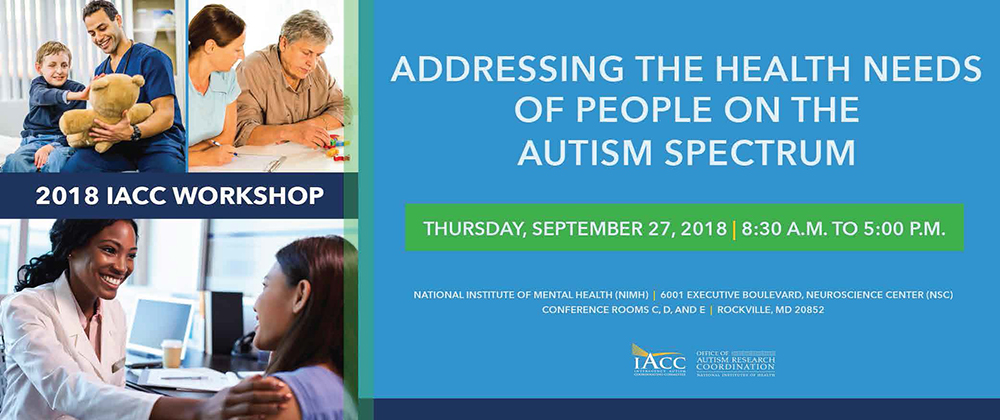
2018 IACC Workshop
 Full Meeting Video
Full Meeting Video
 Photo Gallery
Photo Gallery
 Announcement
Announcement
| Topic | Topic Description |
|---|---|
| Date: | Thursday, September 27, 2018 |
| Time: | 8:30 a.m. to 5:00 p.m. ET |
| Place: | National Institute of Mental Health (NIMH) 6001 Executive Boulevard, Neuroscience Center (NSC) Conference Rooms C, D and E Rockville, MD 20850 |
| Metro Stop: | White Flint Metro Station (Red Line) |
| Registration: | Pre-registration is recommended to expedite check-in. Seating in the meeting room is limited to room capacity and on a first come, first served basis. Onsite registration will also be available. |
| Remote Access: | Conference Call: Dial: 800-369-1744 Access code: 6697418 Webcast: https://videocast.nih.gov/live.asp?live=28242&bhcp=1ac If you experience technical problems with the webcast or conference call, please call 240-668-0302 or e-mail IACCPublicInquiries@mail.nih.gov. |
| Agenda: | The workshop will focus discussion on the health and wellness of people with ASD, including health epidemiology, patient-provider interaction, and the state of the science on commonly co-occurring health conditions affecting people on the autism spectrum. |
| Cost: | The meeting is free and open to the public. |
| Submission Deadlines: | Thursday, September 20, 2018 by 5:00 p.m. ET This includes notification of intent to present oral comments, submission of written/electronic statement for oral comments, and submission of written comments. Please note: Written public comments and statements accompanying oral public comments should be sent to IACCPublicInquiries@mail.nih.gov. For IACC Public Comment guidelines please see:http://iacc.hhs.gov/meetings/public-comments/guidelines/ |
| Public Comment: | The IACC invites oral and written public comments relevant to the topic of the workshop. Individuals interested in presenting oral comments must notify the Contact Person listed on this notice by 5:00 p.m. ET on Thursday, September 20, 2018 and provide a written/electronic copy of the oral presentation/statement.
Expand for more 
A limited number of slots for oral comment are available and will be assigned on a first come, first serve basis. Only one representative of an organization will be allowed to present oral comments at this meeting; other representatives of the same group may provide written comments. If the oral comment session is full, individuals who could not be accommodated are welcome to provide written comments instead. Comments to be read or presented in the meeting will be assigned a 3-minute time slot, but a longer version may be submitted in writing for the record. Commenters going beyond their allotted time in the meeting may be asked to conclude immediately to allow other comments and presentations to proceed on schedule.
Any interested person may submit written public comments to the IACC prior to the meeting by e-mailing the comments to IACCPublicInquiries@mail.nih.gov or by submitting comments at the link: https://iacc.hhs.gov/meetings/public-comments/submit/index.jsp by 5:00 p.m. ET on Thursday, September 20, 2018. The comments should include the name, address, telephone number and when applicable, the business or professional affiliation of the interested person. NIMH anticipates written public comments received by 5:00 p.m. ET on Thursday, September 20, 2018 will be presented to the working group prior to the workshop. Any written comments received after the 5:00 p.m. ET, Thursday, September 20, 2018 deadline through Tuesday, September 25, 2018 will be provided to the working group either before or after the meeting, depending on the volume of comments received and the time required to process them in accordance with privacy regulations and other applicable Federal policies. All written public comments and oral public comment statements received by the deadlines for both oral and written public comments will be provided to the IACC for their consideration and will become part of the public record. Attachments of copyrighted publications are not permitted, but web links or citations for any copyrighted works cited may be provided. Core Values:
In the 2016-2017 IACC Strategic Plan, the IACC listed the "Spirit of Collaboration" as one of its core values, stating that, "We will treat others with respect, listen with open minds to the diverse views of people on the autism spectrum and their families, thoughtfully consider community input, and foster discussions where participants can comfortably where participants can comfortably offer opposing opinions.” In keeping with this core value, the IACC and the NIMH Office of Autism Research Coordination (OARC) ask that members of the public who provide public comments or participate in meetings of the IACC also seek to treat others with respect and consideration in their communications and actions, even when discussing issues of genuine concern or disagreement. |
| Please Note: | Remote Access: The meeting will be open to the public through a conference call phone number and webcast live on the Internet. Members of the public who participate using the conference call phone number will be able to listen to the meeting but will not be heard. If you experience any technical problems with the webcast or conference call, please call 240-668-0302 or e-mail IACCPublicInquiries@mail.nih.gov. Special Accommodations:
Individuals who participate in person or by using these electronic services and who need special assistance, such as captioning of the conference call or other reasonable accommodations, should submit a request to the Contact Person listed on this notice at least 5 days prior to the meeting. Security Visitors will be asked to show one form of identification (for example, a government-issued photo ID, driver’s license, or passport) and to state the purpose of their visit. Also, as a part of security procedures, attendees should be prepared to present a photo ID at the meeting registration desk during the check-in process. Pre-registration is recommended. Seating will be limited to the room capacity and seats will be on a first come, first served basis, with expedited check-in for those who are pre-registered. Meeting schedule subject to change. Information about the IACC is available on the website: https://iacc.hhs.gov. |
| Contact Person: | Ms. Angelice Mitrakas Office of Autism Research Coordination National Institute of Mental Health, NIH 6001 Executive Boulevard, NSC, Room 6183A Rockville, Maryland 20852 Phone: 301-435-9269 E-mail: IACCPublicInquiries@mail.nih.gov |
Back to Top
 Agenda
Agenda
| Time | Event | ||||||
|---|---|---|---|---|---|---|---|
| 8:30 a.m. |
Susan Daniels, Ph.D. Director, Office of Autism Research Coordination, National Institute of Mental Health, and Executive Secretary, IACC David G. Amaral, Ph.D. Distinguished Professor, Department of Psychiatry and Behavioral Science, University of California, Davis (UC), UC Davis MIND Institute Julie Lounds Taylor, Ph.D. Assistant Professor, Pediatrics and Special Education, Vanderbilt University, and Investigator, Vanderbilt Kennedy Center |
||||||
| 8:45 |
Health and Healthcare for Adults on the Autism Spectrum: The Newcastle University Adulthood and Ageing Research Programme
|
||||||
| 9:30 |
Physical and Mental Health in Autism – Epidemiology of Co-occurring Conditions
|
||||||
| 10:15 |
Break
|
||||||
| 10:30 |
Public Comment Session
|
||||||
| 11:30 |
Epilepsy in Individuals with Autism - State of the Science
|
||||||
| 12:30 p.m. |
Lunch
|
||||||
| 1:30 |
Autism and Gastrointestinal Disorders
|
||||||
| 2:15 |
Autism Spectrum Disorder and Sleep
|
||||||
| 3:00 |
Break
|
||||||
| 3:10 |
Patient-Provider Interaction
|
||||||
| 4:20 |
Working Group Discussion
|
||||||
| 5:00 |
Adjournment
|
Back to Top
 Speakers
Speakers
Gregory Barnes, M.D., Ph.D.
Associate Professor, Child Neurology, Department of Neurology, University of Louisville School of Medicine; Director, University of Louisville Autism Center
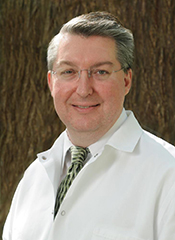
Dr. Gregory Barnes research interests are in understanding the origins of the high co-morbidity of autism and epilepsy. He is the inaugural permanent director of the University of Louisville Autism Center. Dr Barnes’ clinical and basic science research program investigates the genomic determinants of behavior and cognition in human and animal models of autism and epilepsy. The long-term goals of this research are to conduct studies in models of autism and epilepsy to aid in the identification of therapeutic drug targets to ameliorate the burden of neurologic disease in these individuals. Special emphasis is placed on the understanding of the contribution of GABAergic signaling, epileptiform discharges and sleep to epileptogenesis and behavior in the broad ASD populations. Dr. Barnes earned his undergraduate degree from Vanderbilt University and his M.D. and Ph.D. from the University of Kentucky. He completed his internship and residency in pediatrics at the St. Louis Children’s Hospital and went on to a fellowship in pediatric neurology at Boston Children’s Hospital and Harvard Medical School. He completed an epilepsy research fellowship from the Duke University Center for the Advanced Study of Epilepsy.
Timothy Buie, M.D.
Pediatric Gastroenterologist, Boston Children’s Hospital; Assistant Professor, Harvard Medical School
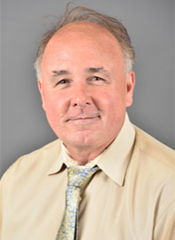
Dr. Timothy M. Buie is a Pediatric Gastroenterologist and Autism medical specialist at Boston Children’s Hospital. Prior to that, he worked in the pediatric gastroenterology department for 18 years at Massachusetts General Hospital for Children. He also served as the Director of Gastrointestinal and Nutrition at Massachusetts General Hospital’s Lurie Center for Autism. Dr. Buie is an Assistant Professor of Pediatrics at Harvard Medical School. In addition to managing a large patient population, Dr. Buie has published a variety of papers and book chapters characterizing gastrointestinal problems in children with autism and developmental disorders, including clinical presentation and medical findings. His work includes translational research of the intestinal microbiome and the metabolic effects of the microbiome in a variety of conditions in pediatrics, including autism and inflammatory disease. He is currently featured on AutismSpeaks.org in an online medical video series he developed and co-produced with Autism Speaks and has been a contributor to the advice column “Food for Thought” on the Autism Speaks web site. He completed his training in Pediatric Gastroenterology at Yale University School of Medicine.
Lisa Croen, Ph.D.
Senior Research Scientist, Division of Research; Kaiser Permanente Northern California, Director, Kaiser Permanente Autism Research Program
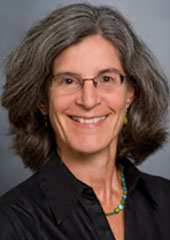
Dr. Lisa Croen is a senior research scientist at the Division of Research at Kaiser Permanente Northern California (KPNC) and the director of the Kaiser Permanente Autism Research Program. Her research interests include the epidemiology of autism and other neurodevelopmental disorders, environmental exposures and gene/environment interaction, and adverse perinatal outcomes. Currently, Dr. Croen leads several studies, including the Early Markers for Autism study (EMA); An ASD Enriched Risk (ASD-ER) ECHO cohort; Early Life Exposure to Endocrine Disrupting Chemicals and Child Growth, Adiposity, and Neurodevelopment (ELEGANT) ECHO cohort; and Prenatal SSRI Exposure, Maternal and Child Genotype, and Autism Spectrum Disorders. In collaboration with clinical colleagues, she is conducting a mixed methods study to evaluate autism treatments at KPNC and investigating health status and healthcare utilization of adolescents and adults with autism. Dr. Croen received both her master's degree in public health and her doctorate in epidemiology from the University of California, Berkeley.
Beth Ann Malow, M.D., M.S.
Burry Chair in Cognitive Childhood Development, Professor of Neurology and Pediatrics; Director, Vanderbilt Sleep Disorders Division
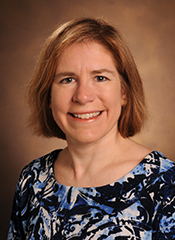
Dr. Beth Ann Malow studies the interrelationship of sleep and neurological disease in the Vanderbilt Sleep Disorders Division. She fosters multidisciplinary collaborations examining the relation of sleep and sleep disorders to a variety of neurological, medical, and psychiatric disorders, including developmental disabilities such as autism. She is board certified in Neurology and Sleep Medicine and has served as a reviewer for NIH study sections. She is the site Principal Investigator for two large networks, the NeuroNEXT network and the Autism Treatment Network, and has led federally-funded studies in behavioral sleep education and supplemental melatonin in children with autism. Prior to joining the faculty at Vanderbilt, Dr. Malow was a tenured associate professor of Neurology at the University of Michigan and director of the Sleep Medicine Fellowship Program. Dr. Malow received her B.S. degree from Northwestern University and her M.D. from Northwestern University Medical School. She then did her internship in Medicine at Beth Israel Medical Center and residency in the Harvard-Longwood Neurological Training Program. This was followed by a fellowship in epilepsy, EEG, and sleep at the National Institutes of Health in Bethesda, MD. She completed a M.S. in Clinical Research Design and Statistical Analysis in at the University of Michigan.
Micah Mazurek, Ph.D.
Associate Professor, Department of Human Services, Curry School of Education, University of Virginia
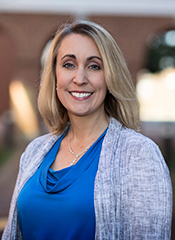
Dr. Micah Mazurek is a clinical psychologist with broad experience in psychological assessment and intervention, and specific expertise in autism and other neurodevelopmental disorders. She has been active in efforts to enhance quality of care through training, capacity-building, and development and dissemination of best-practice autism guidelines and toolkits. Dr. Mazurek’s current research focuses on developing new tools, techniques, and technologies for improving diagnosis, treatment, and access to care for individuals with autism and their families. Her projects focus on the development of new tools for outcome assessment, new models for intervention, and new methods of enhancing access to care for underserved populations. Additional projects focus on addressing co-occurring problems in children with ASD (e.g., sensory problems, sleep problems, anxiety, and aggression), and on understanding screen-based technology use in children and adults with ASD. Prior to her current position, she was an Associate Professor at the University of Missouri and at the Thompson Center for Autism and Neurodevelopmental Disorders and served as Director of the Missouri Leadership Education in Neurodevelopmental Disabilities (LEND) program. Dr. Mazurek received her bachelor’s degree in psychology from Yale University and her master’s and doctoral degrees in clinical psychology from the University of North Carolina at Greensboro. She completed her pre-doctoral clinical internship at the University of Alabama at Birmingham and her postdoctoral fellowship at the University of Missouri.
Christina Nicolaidis, M.D., M.P.H.
Professor and Senior Scholar in Social Determinants of Health, School of Social Work, Portland State University; Adjunct Associate Professor, Division of General Internal Medicine and Geriatrics, Oregon Health and Science University
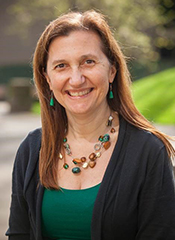
As a general internist and health services researcher, Dr. Nicolaidis uses participatory research to improve the health and healthcare of marginalized populations. Most of her current projects focus on autism in adulthood. She is the co-founder and co-director of the Academic Autism Spectrum Partnership in Research and Education (AASPIRE), an international academic-community partnership that uses community based participatory research to address the priorities of autistic adults. AASPIRE has conducted a series of National Institute of Health-funded studies on healthcare and employment for autistic adults and has created the AASPIRE Healthcare Toolkit for use in primary care settings. She also is the founding Editor-in-Chief of a new peer-reviewed journal, Autism in Adulthood, More broadly, Dr. Nicolaidis works to improve health equity and address social determinants of health. She has led or collaborated on multiple projects on intimate partner violence, racial and ethnic health equity, chronic pain, substance use disorders, mental health in primary care, and patient-provider communication. She directs the Social Determinants of Health Initiative at Portland State University (PSU), where she is a Professor in the School of Social Work. She also continues to teach and practice internal medicine at Oregon Health & Science University (OHSU). Dr. Nicolaidis earned her undergraduate degree from Brown University and her medical degree at Columbia University. She completed her residency in Internal Medicine at OHSU, where she was Chief Resident. She went on to do her fellowship as part of Robert Wood Johnson Clinical Scholars Program at the University of Washington. Dr. Nicolaidis earned her M.P.H. in epidemiology at University of Washington.
Jeremy Parr, M.D.
Professor/Honorary Consultant, Institute of Neuroscience, Newcastle University, United Kingdom
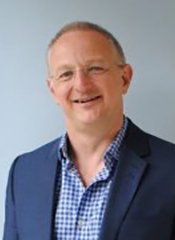
Professor Jeremy Parr is a Pediatric Neurodisability clinical academic with wide ranging research interests, including investigating the causes of autism spectrum disorder, bringing research into clinical settings, assessing the effectiveness of autism interventions, and studying how health services for people on the spectrum and their families should be provided. He practices at two local National Health Service (NHS) Trusts: Newcastle Upon Tyne Hospitals Great North Children’s Hospital and Northumberland, Tyne and Wear. At Northumberland, Tyne and Wear he works in a Regional Autism Spectrum Disorder diagnosis, management and intervention service, where he leads multidisciplinary assessments of young people. Dr. Parr works closely with ASD researchers from the UK and other countries in several studies. Dr. Parr is the Chief Investigator for the Autism Spectrum Database - UK, which is a family research database of children on the spectrum (includes more than 4,500 families of young people). He is also Chief Investigator for one of the world’s largest autism spectrum adulthood and ageing research programs – a series of linked projects including the Adult Autism Spectrum Cohort – UK, which focuses on the experiences of adults on the spectrum and their relatives/caregivers (includes more than 1,700 adults on the autism spectrum and more than 700 relatives). Other studies related to adults on the autism spectrum are focused on diagnosis in adulthood, anxiety treatment, and the healthcare needs of older adults. In addition, he works on include health needs of transition aged youth, and how services should best support them.
Dora Raymaker, Ph.D.
Research Assistant Professor, Portland State University; Co-Director, Academic Autism Spectrum Partnership in Research and Education (AASPIRE)

Dr. Dora Raymaker is a Research Assistant Professor at Portland State University’s Regional Research Institute for Human Services in the School of Social Work, Co-Director of the Academic Autism Spectrum Partnership in Research and Education (AASPIRE), and an autistic person. She became part of Portland State University’s Regional Research Institute for Human Services as a graduate student and is now a principal investigator and co-investigator on multiple projects. Her research interests include community-engaged research practices, systems thinking, accessible technology, measurement adaptation and knowledge translation, and dynamics at the intersection of science, society, and public policy. Dr. Raymaker conducts intervention and services research in collaboration with disabilities and mental health communities. Her autism research, primarily with adults, is focused on intervention development to improve healthcare access and quality, to improve employment outcomes, and to reduce stigma. Dr. Raymaker is the Associate Editor of the journal Autism in Adulthood and on the Scientific Council at the Organization for Autism Research. Dr. Raymaker received her Ph.D. in Systems Science from Portland State University, as well as Graduate Certificates in Computer Modeling and Simulation and Computational Intelligence.
Sarah Spence, M.D., Ph.D.
Co-Director, Autism Spectrum Center, Boston Children’s Hospital; Assistant Professor of Neurology, Harvard Medical School
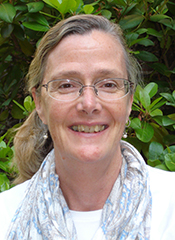
Dr. Sarah Spence’s clinical and research activities have been focused on children with ASD and related disorders for 20 years. As a child neurologist with doctoral training in cognitive neuroscience, her research interests are in the interface between brain and behavior. She credits the formation of her ASD expertise to the experience of doing home visits for the Autism Genetic Resource Exchange (AGRE), a large autism genebank. She spent 6 years as the medical director of the UCLA Autism Evaluation Clinic and then 4 years at the National Institute of Mental Health (NIMH) doing clinical research. She was recruited to Boston Children’s Hospital (BCH) in 2010 where she led a multi-disciplinary effort to create the Autism Spectrum Center at BCH, of which she is co-director. At Boston Children’s she is combining her interests and expertise in clinical care, clinical research, and teaching with a primary focus on improving the lives of children with autism spectrum disorders and their families. Dr. Spence earned her undergraduate degree in psychobiology from Harvard Radcliffe College. She then earned her Ph.D. in Behavioral Neuroscience from the University of California at Los Angeles, where she also completed her residencies in pediatrics and neurology and fellowship in pediatric neurology. She received her M.D. form the University of California at San Francisco.
Back to Top
 Materials
Materials
- Workshop Materials List (PDF – 632 KB)
Back to Top
 Slides
Slides
- IACC Workshop Full Slide Set (PDF 9 MB)
Back to Top
 Public Comments
Public Comments
- Oral Public Comments (PDF – 567 KB)
- Written Public Comments (PDF – 1 MB)
Back to Top
- Meeting Transcript (PDF – 1 MB)
Back to Top














